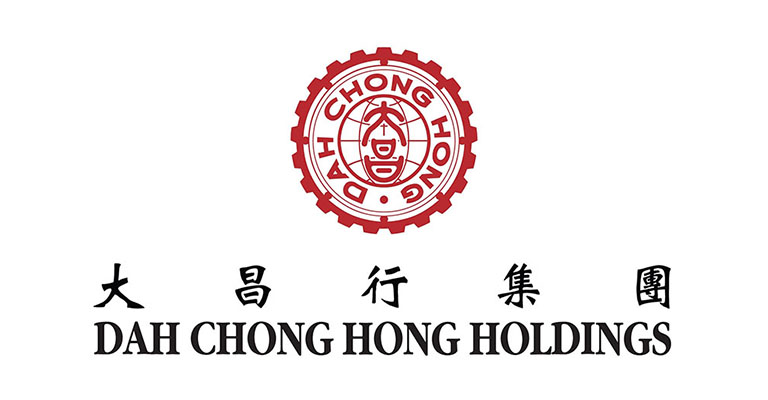ABOUT
With 70 years of experience, Dah Chong Hong Holdings (DCH) has more than 15,000 employees and is an integrated motor and consumer products distribution partner providing insight into evolving consumer lifestyles.
The international company has headquarters in Hong Kong with offices in China, Thailand, Singapore, Malaysia, and other countries in Southeast Asia.
INDUSTRY
Diversified Business Conglomerate
THE CHALLENGE
DCH began looking into new technologies such as Artificial Intelligence (AI), machine learning, and Robotic Process Automation (RPA) a few years ago when its new CEO called for a companywide transformation to modernize existing processes and reduce operational costs. Many legacy systems were still in place and needed to be updated or integrated with the latest technology.
THE SOLUTION
DCH chose the Automation Anywhere platform because it was compatible with the company’s legacy system on Java virtual machine while other RPA solutions were not. After conducting some introductory workshops and providing employees with personal use cases, such as buying concert tickets online to give them experience building bots, the first automation was put into production in just one month.
The company implemented simple automations on its own but relied on Automation Anywhere consultants for help with more complex ones. DCH also turned to Laputa Technologies for extra development resources.
Following a cost benefit analysis (CBA), management could easily visualize the ROI RPA would provide. This helped to promote the technology within the company even more. By the second month, five bots were in production.
PROCESSES AUTOMATED
• Cash application
• Bank statement reconciliation
• Order to delivery automation
• Report generation for management
• Pricing updates
• Invoicing
BENEFITS
• 10K+ Expected hours saved annually
• 24/7 Operations
• 70% Reduced operational costs
STORY DETAILS
The first bot was implemented for SIMS, the Hong Kong Fast-Moving Consumer Goods (FMCG) business unit. Prior to automation, employees received customer e-mail orders and had to log into the enterprise resource planning (ERP) system to manually input each one. Because of this, staff were sometimes required to come back into work on weekends to handle urgent orders. RPA changed that by automating the necessary tasks, resulting in an improved work-life balance for employees while also providing a better customer experience. This motivated employees to think about other areas of their work where automation could be used.
“RPA is just one piece in our digital transformation journey. We look to AI and machine learning so that we can produce more innovative outcomes for our business, staff, and customers.” — Osmond Li Head of Enterprise Development & Database Administration of Group IT
RPA was also used for the cash application process in the Finance department. Before automation, employees had to collect customer payment information from various sources such as PDFs and e-mails then manually extract the data into another document. Information from customer statements also had to be collected from an ERP system and then manually input into a spreadsheet. Trying to match invoices line by line of up to 8,000 records per day was a very tedious process. After that was completed, the customer receipt information still had to be input back into Oracle JD Edwards EnterpriseOne and Oracle Financials. With RPA, four of the previously manual processes could now be handled by a bot.
“Before RPA, intensive and tedious manual processes created tremendous pressures. With automation, staff can now focus on higher-value tasks without needing to put in overtime hours. This has helped to improve employee satisfaction giving them more time to spend with family.” — Osmond Li Head of Enterprise Development & Database Administration of Group IT
DCH also used IQ Bot, which has optical character recognition (OCR) and machine learning (ML) features to digitally recognize the content from documents. With ML and sufficient training, new document formats can now be recognized. IQ Bot was implemented as a solution for the Electrical Appliance Department (EAD) to automate customer order delivery.
The benefits of RPA were especially noticed when the COVID-19 pandemic required minimized social contact and most staff to work from home. With repetitive, tedious, and manual processes automated, employees did not need to be at the office and business was able to operate as usual with no interruptions.
The company expects to save more than 10,000 hours annually with automation. To date, 14 Bot Runners, 10 unattended and 4 attended, and 8 Bot Creators are in production, with 15 automated processes in production.
THE FUTURE
DCH is working on a long-term roadmap for its RPA program. The company plans to migrate to Enterprise A2019 to leverage its on-prem resources and take advantage of the rich features provided in the cloud environment.
When a new area of the business wants to implement automation, shared bot runners are used for testing and development. Currently, bots are being developed for the healthcare, automotive, IT operations, and China food trading departments.
By the end of 2020, the company expects more than 30 processes to be fully automated.
